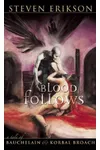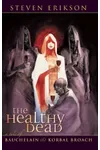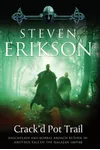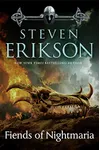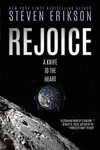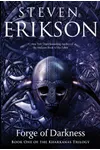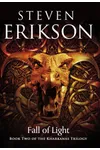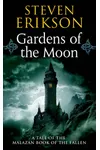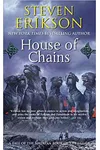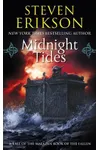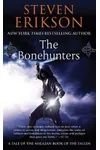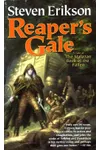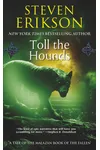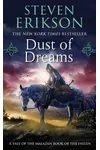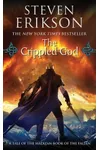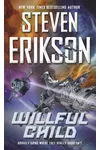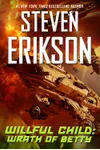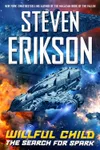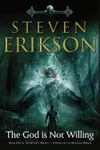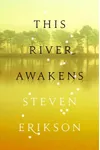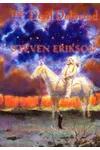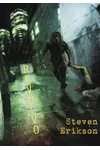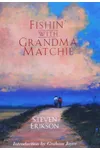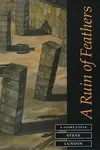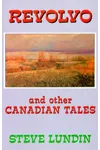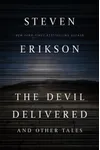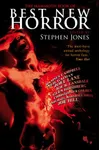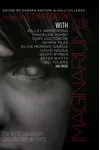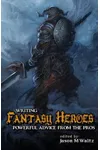Picture a Canadian storyteller who conjured an empire so vast it spans continents, gods, and millennia—meet Steven Erikson! Born Steve Rune Lundin in 1959, this fantasy maestro revolutionized epic fantasy with his Malazan Book of the Fallen series, a sprawling saga that’s as challenging as it is captivating. With a knack for complex plots and a cast of characters larger than a small city, Erikson invites readers to dive into a world where every page demands attention and rewards curiosity.
From his roots as an archaeologist and anthropologist, Erikson crafts stories that feel like unearthed artifacts—layered, intricate, and steeped in history. His unique storytelling, born from role-playing games and a disdain for genre clichés, has earned him a devoted fanbase and critical acclaim. Let’s explore the man behind the Malazan magic!
The Making of Steven Erikson
Born on October 7, 1959, in Toronto, Canada, Steven Erikson grew up in Winnipeg, where lake fishing trips sparked his imagination. A graduate of the University of Victoria’s Creative Writing program, he honed his craft while digging into the past as an archaeologist and anthropologist. These fields shaped his storytelling, infusing his work with a historian’s eye for detail and a scholar’s love for human complexity. Erikson’s early career included short stories and a novel, This River Awakens, published under his real name before he adopted his pseudonym as a nod to his mother’s maiden name.
His big break came from an unlikely source: a role-playing game. Alongside friend Ian Cameron Esslemont, Erikson co-created the Malazan world in the 1980s as a GURPS campaign backdrop. What began as a movie script for Gardens of the Moon morphed into a novel after rejections, launching a saga that would redefine epic fantasy.
Steven Erikson’s Unforgettable Stories
The Malazan Book of the Fallen, a ten-book series starting with Gardens of the Moon (1999) and ending with The Crippled God (2011), is Erikson’s magnum opus. This epic follows the Malazan Empire’s turmoil, weaving gods, mages, and warriors into a tapestry of betrayal, rebellion, and compassion. Gardens of the Moon, shortlisted for a World Fantasy Award, throws readers into a chaotic siege with no hand-holding, while Deadhouse Gates (2000), voted among the top fantasy novels of its year, chronicles the brutal Chain of Dogs march.
Erikson’s style is bold: complex narratives, massive casts, and a refusal to spoon-feed readers. His anthropological background shines in world-building that feels alive, from the egalitarian magic system to societies free of sexism. Beyond Malazan, he’s penned the Kharkanas Trilogy, a prequel exploring the Tiste race, and The God Is Not Willing (2021), a sequel centered on fan-favorite Karsa Orlong. His sci-fi venture, Rejoice, A Knife to the Heart (2018), flips first-contact tropes with wit and depth.
Themes of compassion and futility run deep, with characters like Anomander Rake and Whiskeyjack grappling with power and morality. Erikson’s willingness to kill off central figures keeps readers on edge, making every victory bittersweet. His prose, often poetic, dances between gritty humor and profound reflection, earning praise from authors like Stephen R. Donaldson.
Why Steven Erikson Matters
Steven Erikson redefined epic fantasy by subverting Tolkien-esque tropes, crafting a world where gods falter and mortals shape destiny. With over 3 million Malazan copies sold by 2018, his influence is undeniable, inspiring writers to embrace complexity and diversity in fantasy. Fans cherish the puzzle-like narratives, often rereading to uncover hidden layers, while critics laud his social commentary, like the Letheras economy mirroring real-world issues.
His legacy lies in challenging readers to think, feel, and question. By blending archaeology’s depth with gaming’s creativity, Erikson built a universe that feels timeless yet urgent, cementing his place as a fantasy titan.
- Born: October 7, 1959, Toronto, Canada
- Key Works: Malazan Book of the Fallen, Kharkanas Trilogy, Rejoice, A Knife to the Heart
- Awards: Gardens of the Moon shortlisted for World Fantasy Award
- Influence: Role-playing games, anthropology, and post-Tolkien fantasy
Snag Gardens of the Moon and dive into Steven Erikson’s epic fantasy whirlwind—your brain will thank you for the workout!
